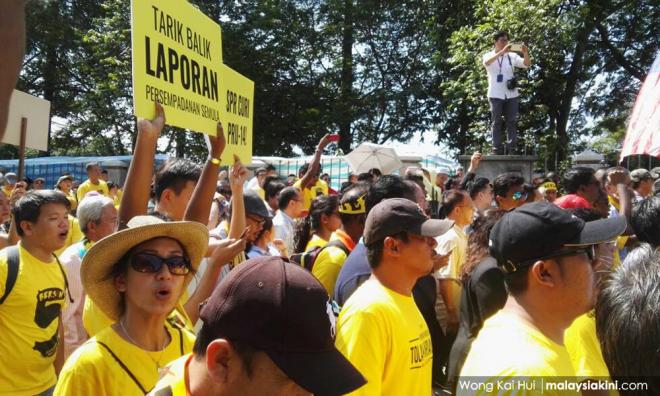
In July 2019, Parliament passed amendments to the Peaceful Assembly Act 2012 (PAA). These amendments received the royal assent on 7 August 2019, and on November 1, 2019 the amendments came into force.
For the uninitiated, the PAA is the legislation which governs peaceful assemblies and gatherings in the country, purportedly in furtherance of the right to peaceful assembly as guaranteed under Article 10(1)(b) of the Federal Constitution.
It must be borne in mind that the Act only facilitates peaceful assemblies without arms, not violent protests, riots and the like. So if there is a protest where the protesters threaten harm to persons or damage to property, then it is not a peaceful assembly and should be dealt with as a crime under the Penal Code.
The PAA replaces the previous legislative regime under Section 27 of the Police Act. Under Section 27 the organiser of an assembly must first obtain a permit from the Officer in Charge of a Police District (OCPD) before holding an assembly.
If an assembly is held without a permit, then the assembly is deemed to be an unlawful assembly and anyone who attends or participates in the assembly would be commiting an offence.
Under the PAA, there is no longer a requirement to obtain a permit. Instead, the organiser of an assembly must give notification to the OCPD before the assembly.
Once notification is given, the OCPD can impose certain conditions and restrictions on the intended assembly, but it has no power to prohibit or prevent the holding of that assembly.
Failure to give notification to the OCPD is a criminal offence, and may be punished with a fine of up to RM10,000.
The constitutionality of the notification requirement under the PAA has been challenged in Court. The Court of Appeal, in two separate decisions, has come to two different conclusions.

In the earlier case of Nik Nazmi (above) v Public Prosecutor, the Court of Appeal held that the criminalisation of non-notification is unconstitutional. However, in the later case of Yuneswaran Ramraj v Public Prosecutor, it was held that the same provision is constitutional.
An amendment to the PAA has reduced the notice period from 10 days to 5 days. The amendment also allows the OCPD to compound the failure to notify of up to RM5,000, instead of bringing the matter to Court.
These changes make the law better, but the Government should also look at reducing the maximum fine of RM10,000 upon a criminal conviction.
An amendment has also removed the blanket prohibition on ‘street protest’, defined in the PAA as ‘an open air assembly which begins with a meeting at a specified place and consists of walking in a mass march or rally for the purpose of objecting to or advancing a particular cause or causes’.
This prohibition has been criticised by civil society groups, and again this is a welcome amendment.
One aspect of the law which the Government appeared to not have considered is the possibility of spontaneous or urgent assemblies. There are instances where the need to assemble arises, and giving 5 days’ notice is simply not possible. The PAA does not provide for such assemblies, and the organisers of these assemblies run the risk of falling foul of the law.
Malaysia has come a long way when it comes to peaceful gatherings and protests. From the days in which such assemblies are looked upon negatively as disruptive and destructive, to the normalisation of assemblies through major public demonstrations such as Bersih.
The law that governs these assemblies have also improved throughout the years, and it is hoped that further improvements will be made to ensure that we uphold the right to assemble peacefully without arms.
SYAHREDZAN JOHAN is a civil liberties lawyer and political secretary to Iskandar Puteri MP Lim Kit Siang. - Mkini



No comments:
Post a Comment
Note: Only a member of this blog may post a comment.